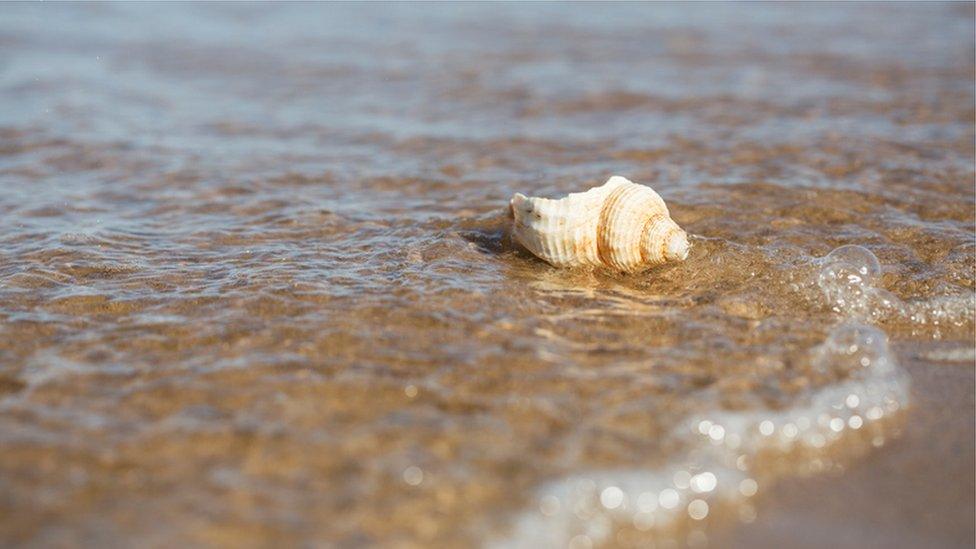Coronavirus: Crab shells may protect NHS staff from virus
- Published
- comments
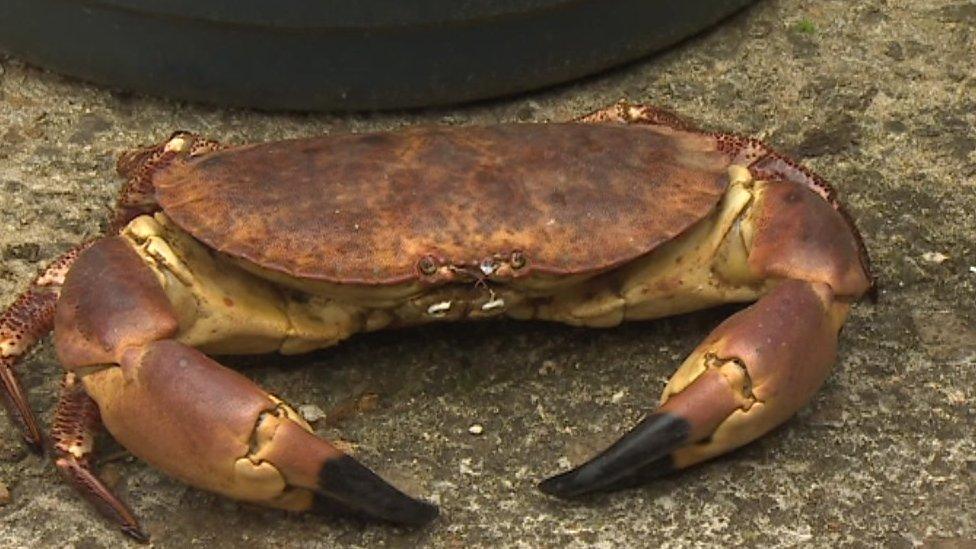
Naturally occurring chemicals in crab shells could help in the covid fight
Crab shells could be used to protect NHS staff from coronavirus by killing germs on medical equipment, Welsh scientists have said.
It is hoped a coating which has long-lasting "virus destroying" properties could be made from chitosan, a chemical naturally found in the shells.
It is being developed in north Wales by the firm Pennotec and chemists at Bangor University.
They hope it can used on protective equipment to halt virus spread.
The Gwynedd-based company, working with Bangor University's BioComposites Centre, has modified chitosan found in lobster and crab shells to make the anti-virus product.
They now hope to create a coating which can be applied to medical equipment, and masks and gowns worn by NHS staff, which will kill any virus coming into contact with it.
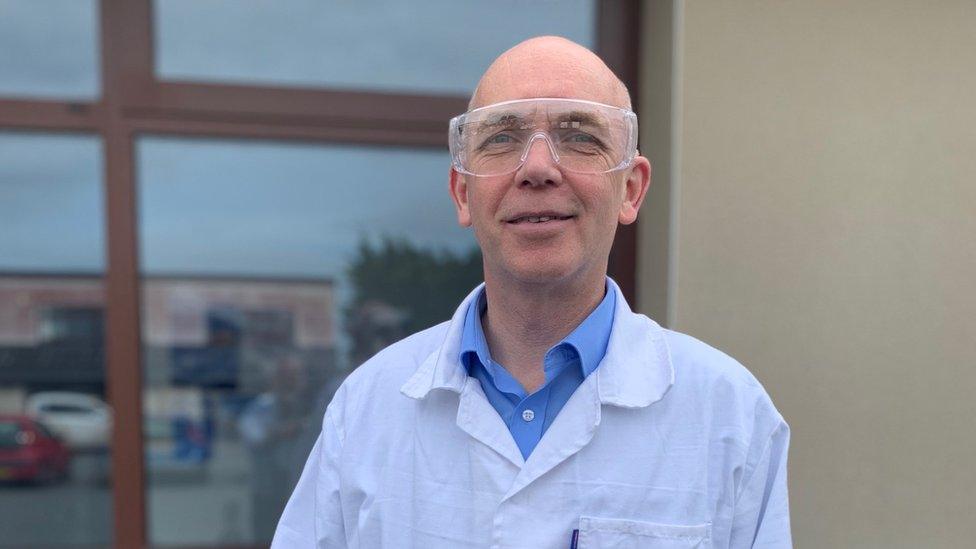
Pennotec boss Jonathan Hughes said he was "very excited" about the plan
Once the chitosan-based coatings have been developed, their effectiveness against viruses, particularly coronaviruses, will be tested in the laboratory.
The scientists received funding from a UK government scheme to carry out the research.
Pennotec managing director Jonathan Hughes said: "We are very excited about this new application for our chitosans.
"Our business is focused on developing natural products from wastes that have benefits to health, society and the environment. Medical materials are a new departure for us."
'Made in Wales' virus battling inventions
Dr Rob Elias, director of Bangor's Biocomposites Centre, said it could be a game-changing approach for personal protective equipment: "It's massive, the impact of this is is huge.
"If we can improve the microbial virucidal activity of those surfaces by this type of technology and this approach, you can imagine that we're really helping to reduce the rates of transmission.
"So it's got a massive impact into the society - great opportunity."
Dr Elias said the chitosan was one of the world's most important polymers available to chemists, as well as being a naturally-occurring resource.
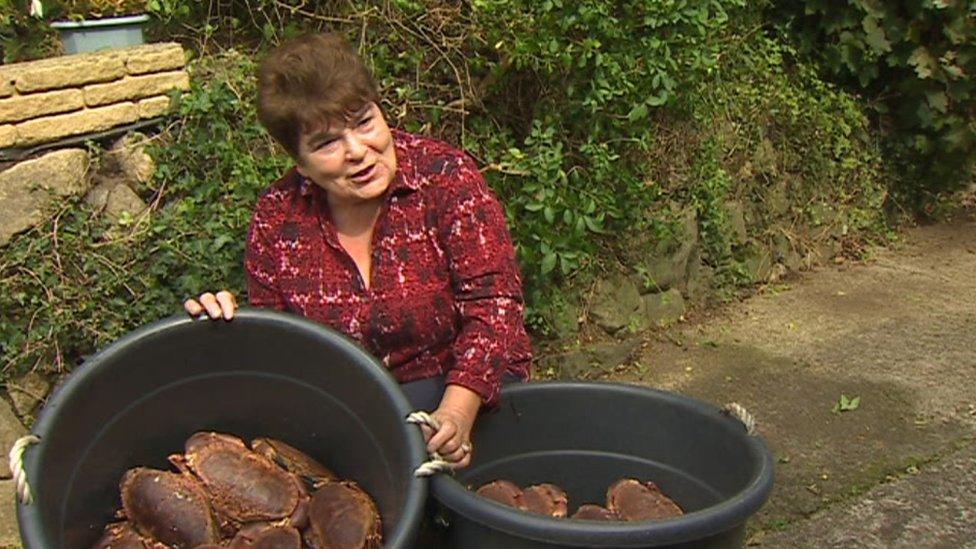
Seafood supplier Mary Griffiths-White says it is "brilliant" to be involved
The crab shells providing the raw material are not only natural, they are also local as they are provided by Gwynedd firm Selective Seafoods.
The company usually supplies catering companies with cooked crab, and the shells are a by-product.
"We live in such a throw-away society, it's absolutely ridiculous, so anything that can help recycle anything at all - it's absolutely brilliant," said co-owner Mary Griffiths-White.
"I'm hoping it will put a stop to the spread of the coronavirus. Once you've got a protective covering, surely that's going to help the world in general."
- Published15 May 2020
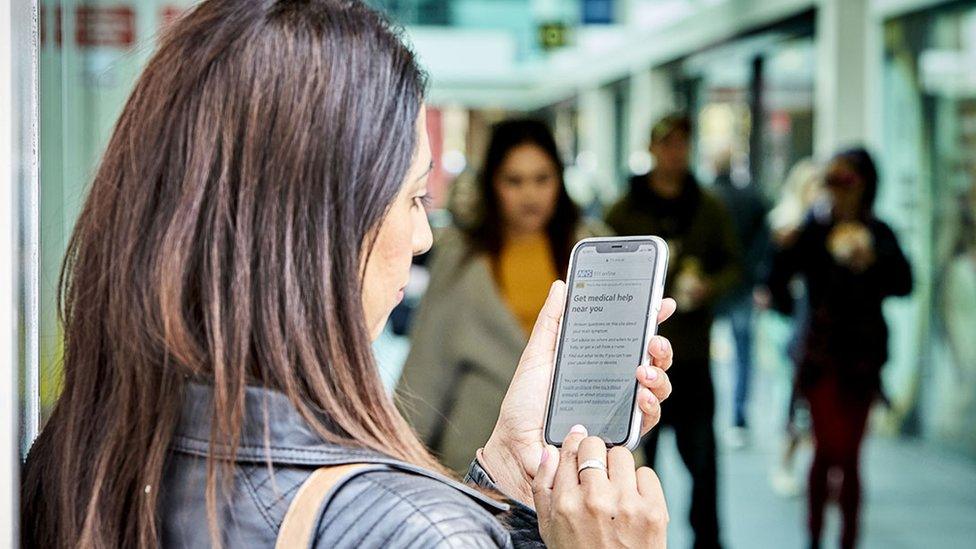
- Published24 March 2020
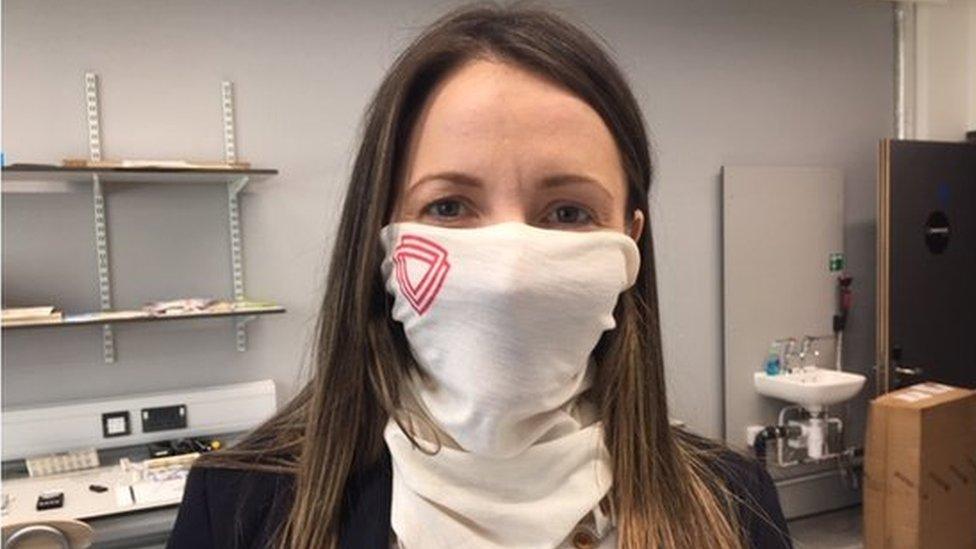
- Published24 March 2020
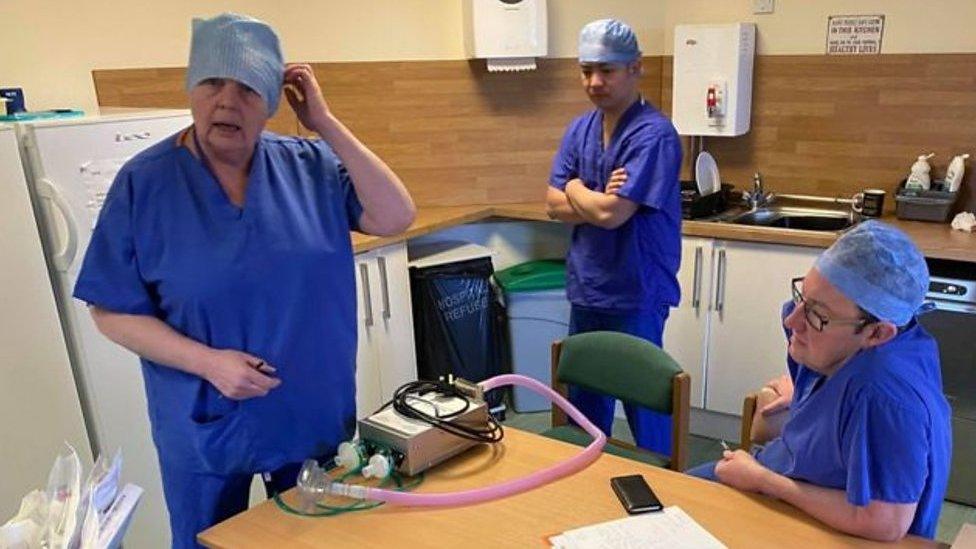
- Published7 April 2018
